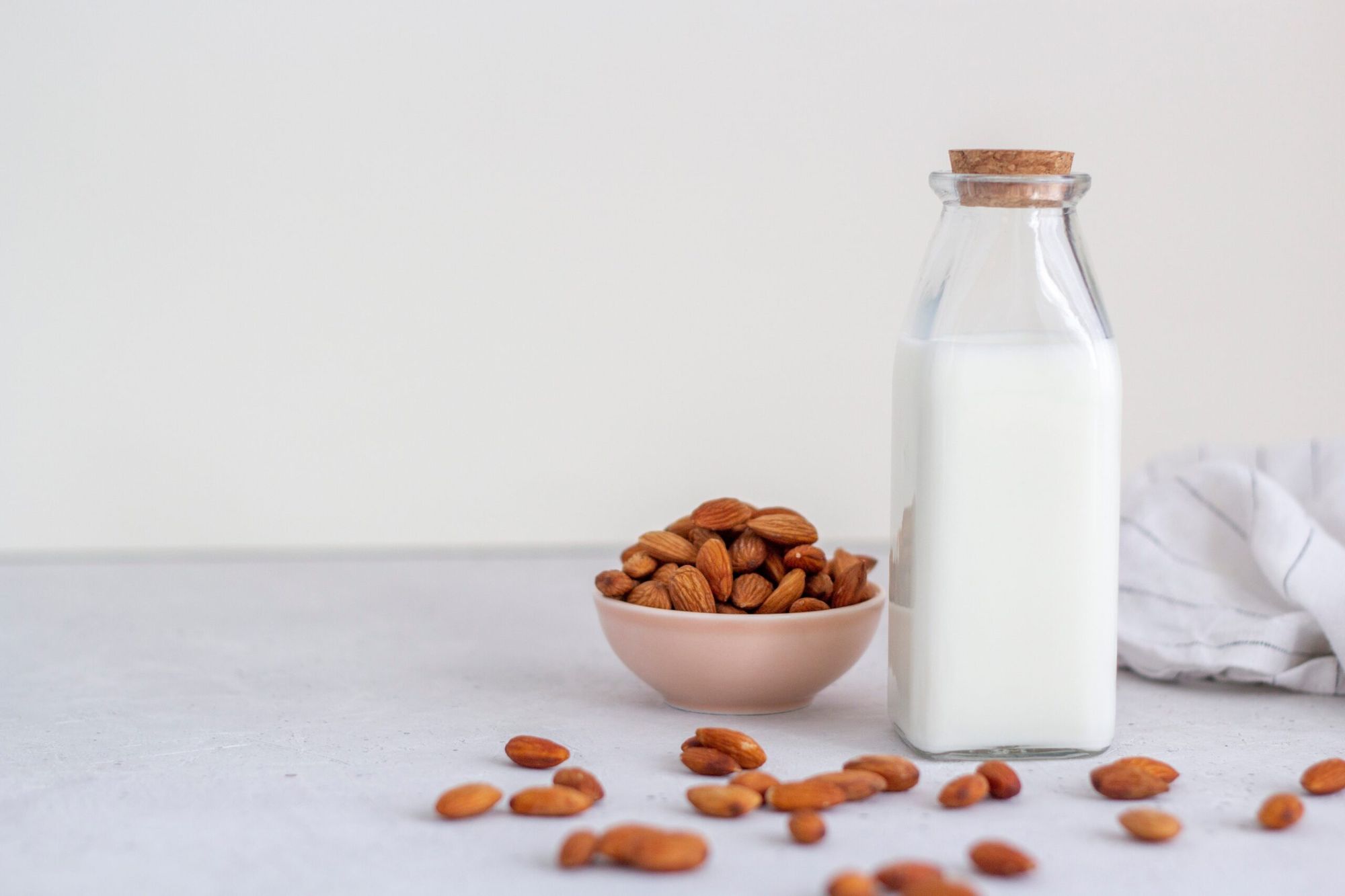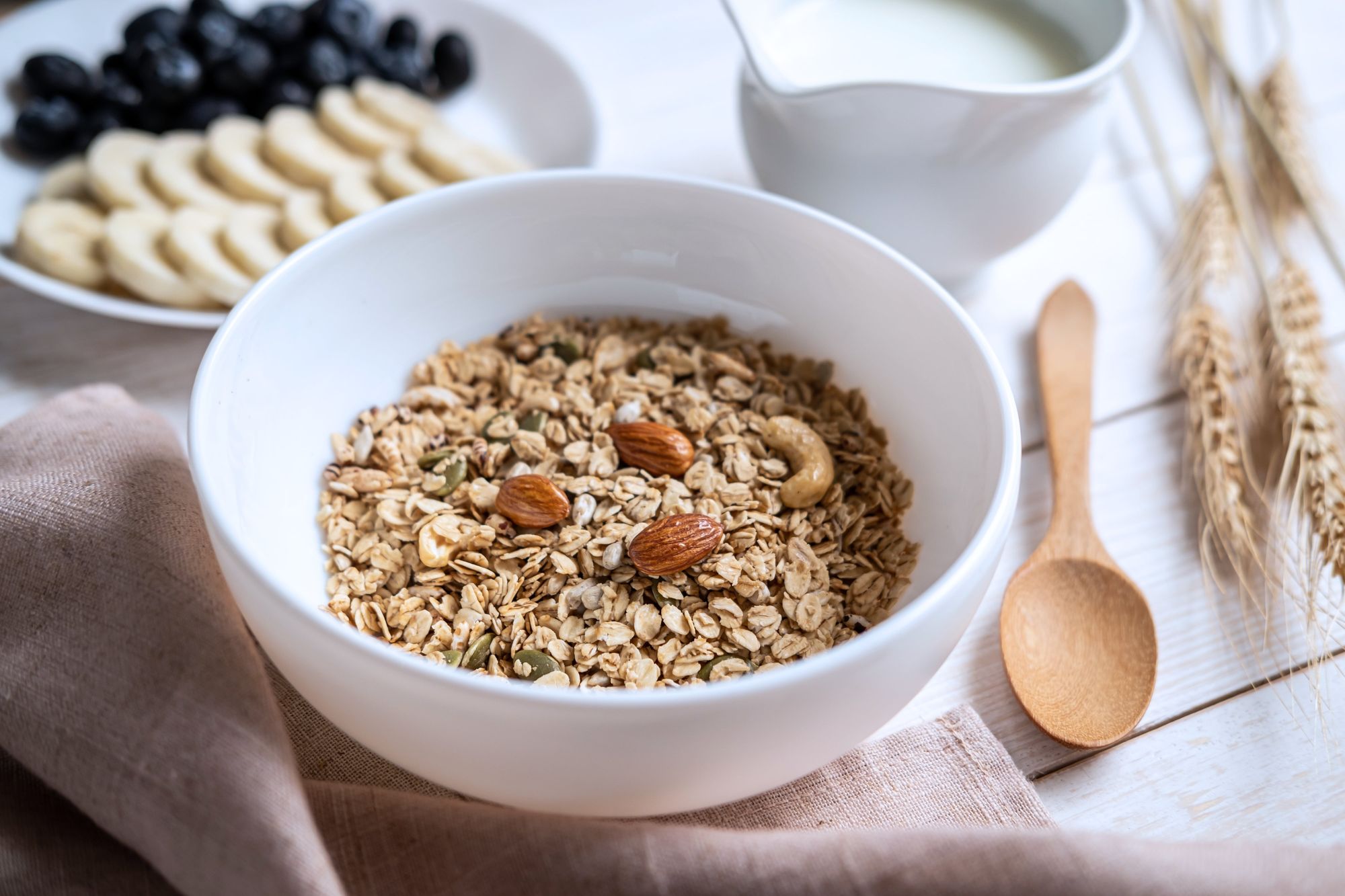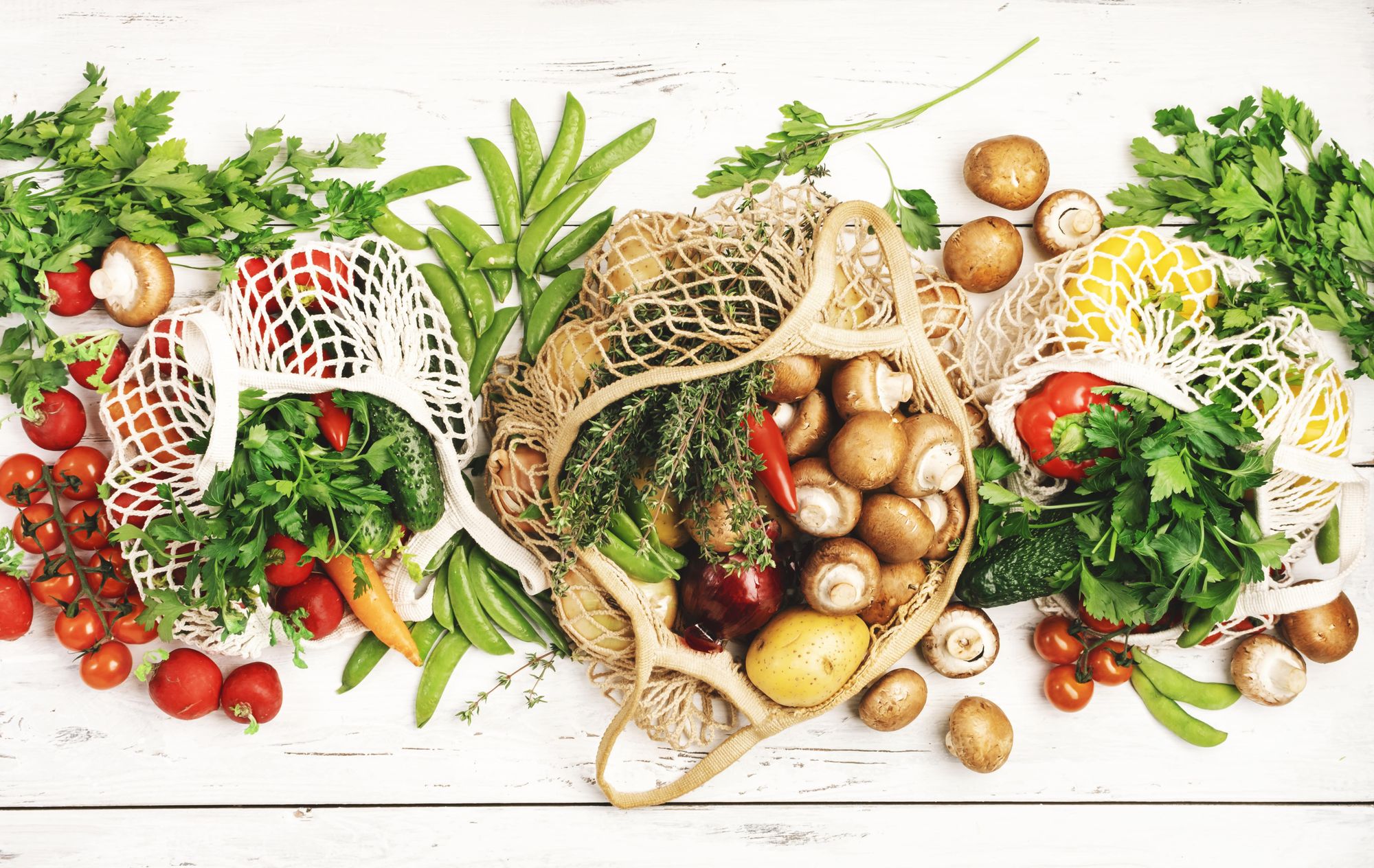
The popularity of the vegan diet is not without reason, but it’s important to understand how to get enough B12 on a vegan diet, as it’s such an important vitamin. The vegan diet offers a number of ethical, economic, and nutritional benefits, and a vegan lifestyle appeals to people from all walks of life. Getting enough protein and understanding how to get enough B12 are just some of the dietary concerns vegans have to be cognizant of.
According to some studies, there were around 79 million vegans as of January 2021, and in the next 10 years, experts predict 1 in 10 people will be vegans. However, as fantastic as veganism can be, it does have its challenges. Any diet which restricts access to a specific food group can naturally increase your chances of suffering from certain deficiencies.
How to get enough B12 into their diet is one of the most important concerns for a vegan, but why is that? Let’s discuss why vitamin B12 is so important, as well as how to get enough B12 on this diet.
What is Vitamin B12, and Why is it Important?
Vitamin B12, or ‘cobalamin’ is an essential vitamin. ‘Essential’ nutrients are the ones our bodies need to thrive, but cannot produce internally. In other words, your body cannot make vitamin B12 on it’s own, so you must figure out how to get enough B12 via food or via supplements.
Vitamin B12 contributes to good health in a multitude of different ways. It supports the normal and healthy functioning of nerve cells, assists with DNA synthesis and red blood cell formation, and fights against anemia.
Benefits of Vitamin B12 also include:
- Helps keep your bones healthy, and reduces the risk of osteoporosis.
- Reduces your risk of macular degeneration.
- Improve your mood and reduce the symptoms of depression.
- Protects against brain atrophy and preserves memory.
- B12 helps combat fatigue and increases energy levels
- Improves heart health via homocysteine levels.
Unfortunately, vegans frequently struggle with consuming enough vitamin B12, because vitamin B12 is primarily found in animal products.
According to one study published by the American Journal of Nutrition, 92% of the vegans studied had a vitamin B12 deficiency, compared to only 5% of meat eaters having this deficiency.

Signs of Vitamin B12 Deficiency
Vitamin B12 is an essential nutrient we all need to maintain a healthy lifestyle. The average recommended daily intake of vitamin B12 for most adults is 2.4 mcg. However, it is recommended pregnant women get more B12, because a deficiency can contribute to a higher risk of birth defects and miscarriages.
When vegans don’t get enough B12 into their diet, the result can be a number of uncomfortable, and potentially dangerous deficiency symptoms. It’s important to be aware of these symptoms if you’re following a plant-based diet, so you can seek help from a medical professional.
Common signs of vitamin B12 deficiency include:
- Difficulty thinking clearly, and trouble problem-solving
- Anemia
- Numbness or tingling in the extremities
- An inflamed or swollen tongue
- Brain fog
- Fatigue, weakness, or trouble balancing
Very low intake of B12 can also cause significant problems, including nervous system damage, when it isn’t addressed correctly. It may be helpful to speak to a doctor about how to get enough B12 so that you can avoid potential B12 deficiency issues on a vegan diet.
How to Get Enough B12: Supplementation Options for Vegans
Perhaps the easiest way for vegans to ensure they’re getting the right amount of B12 into their system is via supplementation. While there are some plant-based foods which naturally contain vitamin B12, research is still ongoing into how effective these food sources of B12 are for humans.
There are various ways to supplement with vitamin B12. The most common option is to simply take a daily B12 capsule recommended by your doctor. Generally, a daily supplement should contain around 25-100 mcg of cyanocobalamin to ensure you’re meeting your daily recommended intake.
Another option could be vitamin B12 injections. Research indicates only around half of an orally consumed B12 tablet may be absorbed in the body. Injections and shots allow vegans to bypass bacterial symbiosis, and boost their absorption levels. However, it’s best to seek advice from your medical practitioner to determine whether B12 injections are right for you.
When supplementing with vitamin B12, it’s also worth remembering the standard daily recommended intake might not be suitable for your needs. Your ability to absorb B12 decreases with age, which means you may need to take more supplements, or eat a larger number of fortified foods.
Keep Your Genetics in Mind
If you are planning on using supplementation to meet your B12 needs on a vegan diet, it’s also worth thinking about your genetics, and if that impacts how to get enough B12. The FUT2 gene, located on chromosome 19 is associated with the synthesis of a certain enzyme, known to attach to the bacterium “Helicobacter pylori”.
This is the form of bacteria most likely to affect the absorption of vitamin B12. People with a certain variant of the gene (variant A) appear to have an increased secretion of the FUT2 enzyme, which can increase their risk of infections. People with the “G variant” of this gene generally have much lower plasma-based vitamin B12 levels.
If you have a genetic predisposition for vitamin B12 deficiency, you may need to consume more than the recommended daily allowance of 2.4mcg.
You can find out more about the optimal diet plan for you, based on your genetic makeup, and whether you have higher needs for certain vitamins because of your DNA, via a CircleDNA test.

Foods Fortified with B12 for Vegans
Outside of supplemental vitamins and B12 injections, fortified foods are the most commonly recommended way to avoid B12 deficiencies for vegans.
If you want to master how to get enough B12 on a vegan diet, you’ll want to look for foods at the grocery store that are fortified with B12.
A fortified food are foods like cereals, dairy-free yogurts, juices or nut milks, which contain added vitamins and minerals. Research has shown that eating fortified cereals does effectively increase vitamin B12 concentrations in people on a plant-based diet.
One report found when participants consumed 240ml of fortified cereal containing approximately 200% of the recommended B12 daily intake every day for 14 weeks, their B12 levels were significantly increased.
Fortified foods are excellent for increasing your B12 intake because they’re easy for the body to digest, and relatively simple to find at the grocery store. However, it’s best to avoid any foods which may contain large amounts of added ingredients, such as sugar.
Natural Sources of B12 for Vegans
Limited research into plant-based sources of vitamin B12 have led most doctors to champion supplementation and fortified foods as the best ways to get the right dose in a vegan diet. However, there are some vegan foods which do show some potential for increasing B12 intake.
The most common vegan or plant-based foods that contain some B12 include:
- Shitake Mushrooms: Certain mushrooms contain natural sources of vitamin B12, though the levels are often relatively low. You’ll need around 50 grams of dried shitake mushrooms just to meet your daily requirement of B12. While you might not get all of your daily recommended value from mushrooms, adding shitake to some of your meals could give you a much-needed B12 boost in addition to other forms of supplementation.
- Nutritional yeast: Nutritional yeast is another form of fortified food which contains B12. This is often a common product in many vegan diets, as it offers a range of health benefits, as well as boosting the flavor of various meals. A single tablespoon of fortified nutritional yeast can deliver 100% of your daily requirements for B12. This product is also highly versatile, and can be added to chilis, sauces, soups, and curries.
- Nori: Nori is an algae-based product commonly eaten in Asian countries. According to one study, it’s a good source of vitamin B12, capable of delivering your required daily allowance in about 4 grams. Further research is needed to determine the bioavailability of the B12 in Nori, however. You may also find this product is harder to find than other sources of vegan-friendly vitamin B12.
- Tempeh: Though not quite as popular as tofu, Tempeh is a mainstay of many vegetarian and vegan diets. The product is made from cooked and fermented soybeans. While the beans don’t contain B12, the fermenting process helps to generate this essential vitamin.
- Kimchi: Kimchi is a fermented food made from cabbage, radish and other ingredients. While it’s usually made with fish sauce, making it non-vegan, it is possible to make vegan versions of the product. One study found Kimchi does contain some vitamin B12, but this may not be true for all home-made and vegan recipes.
- Chlorella: Similar to Nori, Chlorella is a kind of algae which grows in fresh water. There are some studies to indicate Chlorella offers a bioavailable form of plant-based B12. Researchers suggest vegans will need around 9 grams of Chlorella in their diet each day to avoid the issues of vitamin B12 deficiency.
Notably, plant-based meats can also be a decent source of vitamin B12, as they’re often fortified with additional minerals and vitamins. The amount of vitamin B12 in a plant-based meat product will vary depending on the brand, so check the label for that information.

Can Certain Organic Foods Help Vegans Get Enough B12?
Some advocates of plant-based diets believe organic, and unwashed fresh produce is also a good source of vitamin B12. This belief comes from the fact vitamin B12 is created by bacteria, which can form in the soil of organic farms.
Opting for organic food is usually much better for your health than going non-organic, as it allows you to avoid many dangerous additives, and access a wider range of vitamins.
However, there isn’t sufficient evidence (yet) to suggest simply eating organic, or unwashed produce can help you meet your B12 requirements. The limited research available into this concept suggests fortified foods and supplements are a better alternative.
This means that if you’re figuring out how to get enough B12, you can’t rely on organic produce.
Staying Healthy on a Vegan Diet
It’s entirely possible to live a healthy lifestyle on a vegan diet. However, it is important to be aware of the additional risks you face for certain nutritional deficiencies. There’s a good chance you’ll struggle to get the right level of B12 into your system on a plant-based diet alone. What’s more, your absorption of B12 could be further affected by your genetics, depending on whether you have genetically higher needs of B12.
Working with your doctor or a nutritional expert to create a plan for B12 supplementation should help you to avoid the various health concerns associated with B12 deficiencies. It is possible to get enough vitamin B12 on a vegan diet, it simply requires some organization and planning.
References
- Revealing Vegan Statistics: Veganism Is on the Rise in 2022 (Pawsome Advice) https://pawsomeadvice.com/environment/vegan-statistics/#:~:text=How%20many%20vegans%20are%20there,within%20the%20next%2010%20years.
- Vitamin B(12) deficiency and depression in physically disabled older women: epidemiologic evidence from the Women’s Health and Aging Study (B W Penninx, J M Guralnik, L Ferrucci, L P Fried, R H Allen & S P Stabler) https://pubmed.ncbi.nlm.nih.gov/10784463/
- Vitamin B12 and Homocysteine Levels and 6-Year Change in Peripheral Nerve Function and Neurological Signs (Kira Leishear, Luigi Ferrucci, Fulvio Lauretani, Robert M. Boudreau, Stephanie A. Studenski, Caterina Rosano et. al) https://www.ncbi.nlm.nih.gov/pmc/articles/PMC3326240/
- Vitamin B-12 status, particularly holotranscobalamin II and methylmalonic acid concentrations, and hyperhomocysteinemia in vegetarians (Wolfgang Herrmann , Heike Schorr, Rima Obeid & Jürgen Geisel) https://pubmed.ncbi.nlm.nih.gov/12816782/
- Vitamin B12 (The Office of Dietary Supplements) https://ods.od.nih.gov/factsheets/VitaminB12-HealthProfessional/
- Effects of folate and vitamin B12 deficiencies during pregnancy on fetal, infant, and child development (Anne M Molloy , Peadar N Kirke, Lawrence C Brody, John M Scott & James L Mills) https://pubmed.ncbi.nlm.nih.gov/18709885/
- Studies of biomarker responses to intervention with vitamin B-12: a systematic review of randomized controlled trials (Leane Hoey , J J Strain & Helene McNulty) https://pubmed.ncbi.nlm.nih.gov/19403638/
- Fortified breakfast cereal consumed daily for 12 wk leads to a significant improvement in micronutrient intake and micronutrient status in adolescent girls: a randomised controlled trial (Hilary J Powers , Mark Stephens , Jean Russell & Marilyn H Hill) https://pubmed.ncbi.nlm.nih.gov/27418034/
- Breakfast cereal fortified with folic acid, vitamin B-6, and vitamin B-12 increases vitamin concentrations and reduces homocysteine concentrations: a randomized trial (Katherine L Tucker , Beth Olson, Peter Bakun, Gerard E Dallal, Jacob Selhub & Irwin H Rosenberg) https://pubmed.ncbi.nlm.nih.gov/15113718/
- Vitamin B12-Containing Plant Food Sources for Vegetarians (Fumio Watanabe, Yukinori Yabuta, Tomohiro Bito & Fei Teng) https://www.ncbi.nlm.nih.gov/pmc/articles/PMC4042564/
- Discovery of Novel Sources of Vitamin B12in Traditional Korean Foods from Nutritional Surveys of Centenarians (Chung Shil Kwak, Mee Sook Lee, Se In Oh & Sang Chul Park) https://www.hindawi.com/journals/cggr/2010/374897/tab5/
- Nutritional Supplementation with Chlorella pyrenoidosa Lowers Serum Methylmalonic Acid in Vegans and Vegetarians with a Suspected Vitamin B₁₂ Deficiency (Randall Edward Merchant, Todd W Phillips & Jay Udani ) https://pubmed.ncbi.nlm.nih.gov/26485478







Comments are closed.